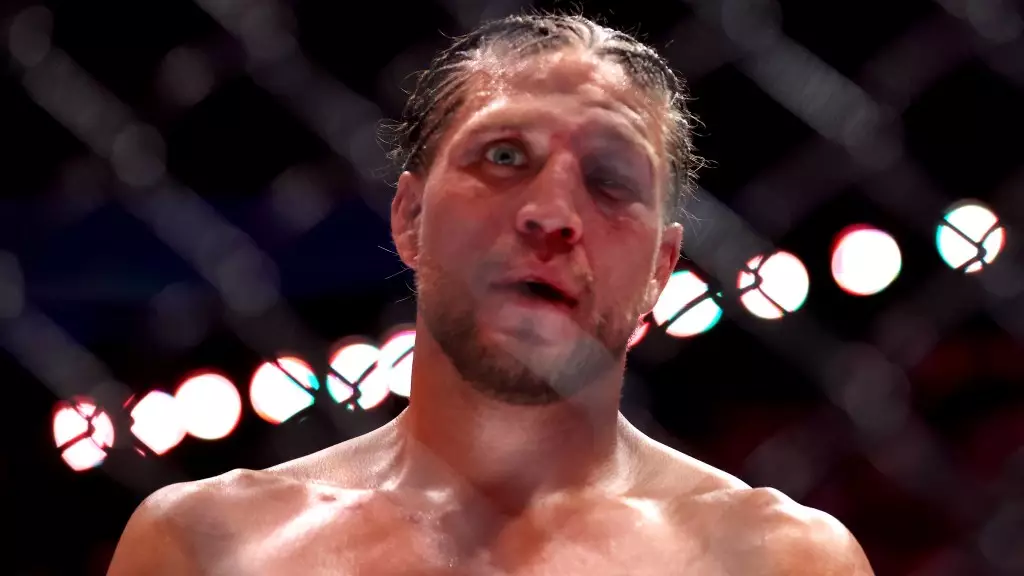Brian Ortega’s recent experience at UFC 306 serves as a poignant reminder of the challenges elite athletes face, both physically and emotionally. After a unanimous decision loss to Diego Lopes, Ortega is confronted with more than just battle scars; he has to grapple with self-doubt and the need for introspection. The visible aftermath of the fight—his swollen face and irritated body—symbolizes the rigorous demands of professional fighting. Yet, it is his mental fortitude that will ultimately determine his long-term success.
In the days following the loss, Ortega’s ability to reflect is noteworthy. Instead of avoiding the painful memories of the fight, he embraces them, pushing himself to analyze his performance critically. The notion that he is “crying blood” not only suggests the physical toll but also represents a turning point in his career. Ortega’s willingness to confront the shortcomings of his fight strategy indicates a mature mindset focused on growth and improvement.
A Pathway to Improvement
Ortega has demonstrated a commitment to not just recover from this bout but to adapt and evolve as a fighter. His statement that “we’re good mentally, physically” reflects a nuanced understanding of the balance between body and mind in combat sports. Athletes often overlook mental recovery, yet Ortega recognizes its importance. He seems to appreciate that both his physical wounds and psychological burdens need attention; hence, undergoing a dual process of healing and strategizing.
The loss marks a stark realization for Ortega, who now sits with a 1-3 record over his last four matches after an impressive start to his career. This shift can be jarring for anyone, and Ortega is no exception. However, he does not allow the setbacks to deter him. Instead, he channels his frustration into a calculated plan for advancement. This resilience is what sets successful athletes apart from their peers, and Ortega is positioning himself to reclaim his standing in the UFC.
Looking Ahead: A Potential Shift
One of the more intriguing aspects of Ortega’s journey is his contemplation of shifting weight classes. Speculation about a move to lightweight could symbolize a fresh start, as well as a strategic decision to escape the shadows of his previous losses and the fighters he has faced in the featherweight division. Transitioning to a new weight class not only offers the possibility of facing different opponents but may also rekindle Ortega’s competitive spirit.
At 33, Ortega still has plenty of fighting years left in him, and he understands the importance of evolving with the sport. The UFC landscape is ever-changing, and adapting his training, approach, and even weight class could be a crucial part of his comeback narrative.
Brian Ortega’s story is far from over. While his recent loss may weigh heavily on his physical frame, the resilience he exhibits through reflection and planning indicates a constructive approach to recovery. The messages of love and support he has received are not just a comfort but also serve as motivation to rise again. In the combat sports arena, it is not only the victories that define a fighter but also their ability to learn from defeat—a lesson Ortega seems poised to take to heart as he charts his path forward.

